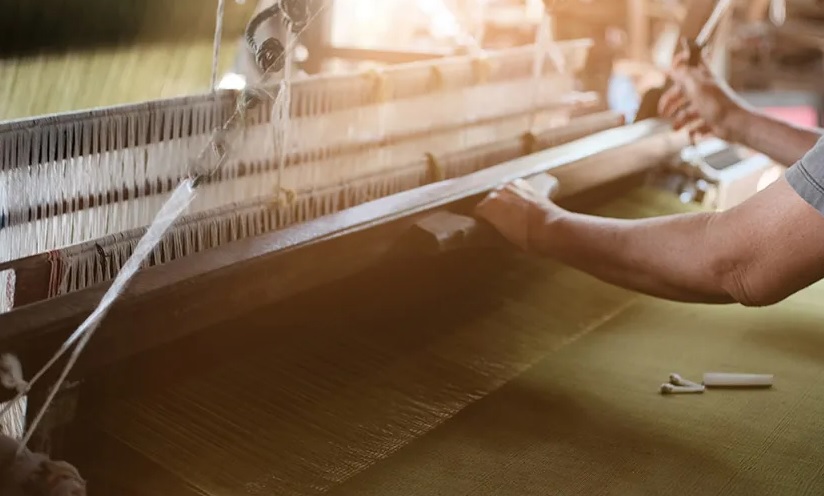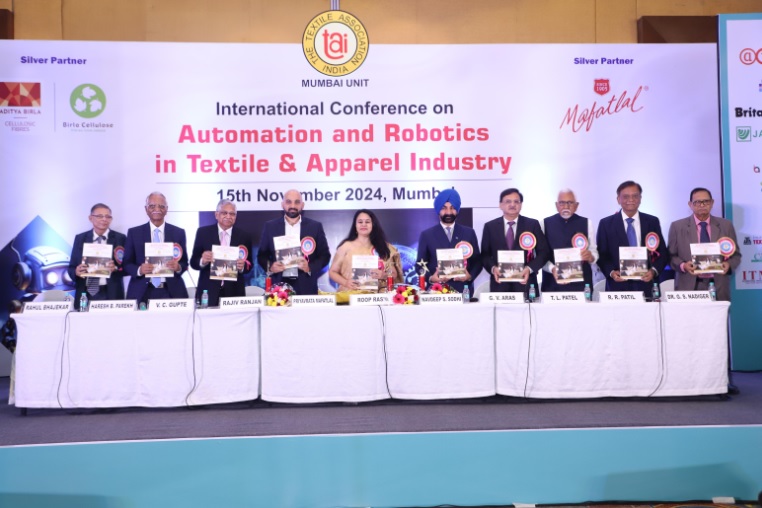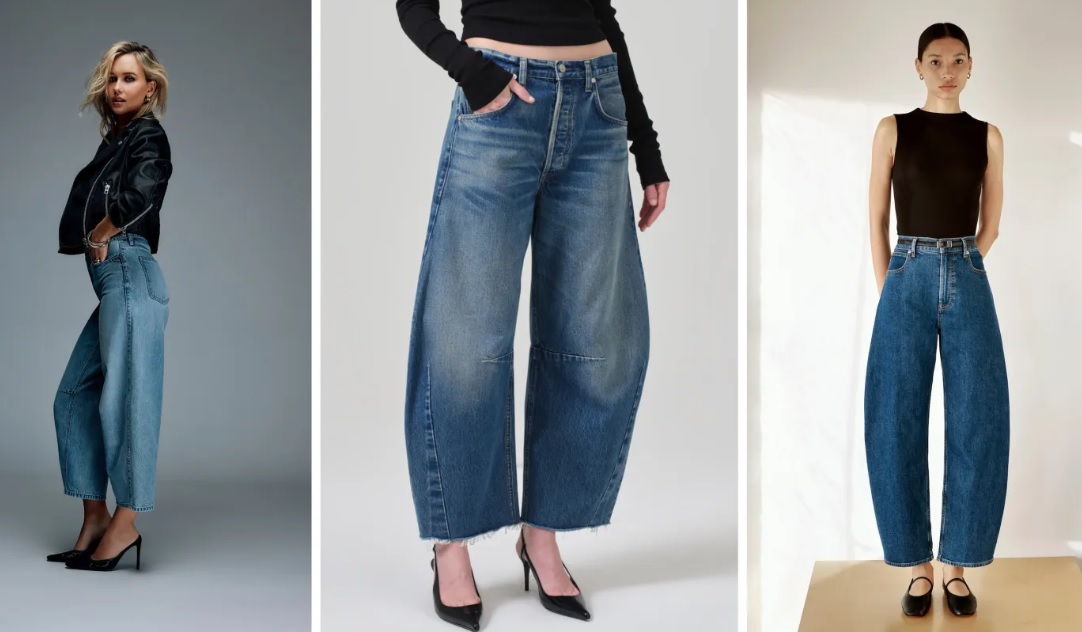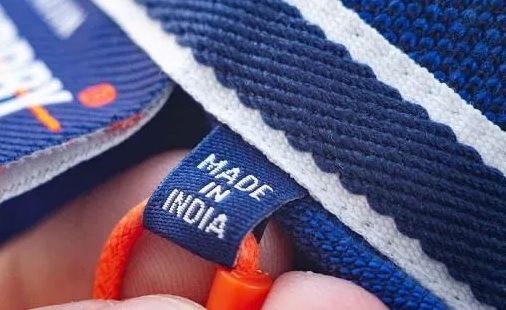FW
The Autumn/Winter 2025 edition of Scoop returns from February 9-11, 2025, at Olympia West, Kensington, promising a vibrant curation of British and international designers. Scoop’s Founder and Managing Director, Karen Radley, emphasizes the event’s immersive, inspirational experience tailored for influential buyers seeking standout collections across womenswear, accessories, homeware, and scent-care.
Radley emphasized that Scoop is more than just a trade show, describing it as a meticulously curated platform designed to showcase visionary creators and tastemakers. She highlighted the event’s diverse lineup, featuring a blend of emerging talents and well-established designers.
Debuting at Scoop, Beatriz Furest blends family tradition with modern trends, offering handcrafted clothing and accessories from sustainable materials in Spain. Brenda Knight, a British designer, brings luxurious sheepskin, suede, and leather garments featuring vintage-inspired hand-embroidered details, crafted in her New Delhi workshop.
French brand Suncoo showcases Parisian chic with vibrant prints and timeless cuts, while Spain’s Siyu highlights artisanal ready-to-wear collections rooted in natural fabrics and bold patterns. Footwear brand Augusta offers refined European craftsmanship, including elegant loafers, ballet pumps, and ankle boots.
Jewellery brand Gas Bijoux, renowned since 1969, presents its Cophea collection, inspired by marine mesh, featuring gold and silver-plated pieces handcrafted in Marseille. Sustainable scent-care brand Re-Eau debuts unisex fragrances inspired by Brazil’s natural beauty. Orelia introduces its Mayfair collection, emphasizing modern, stackable jewellery. Maison Laulhere, a historic French beret maker, showcases artisanal pieces crafted from Merino wool.
Scoop’s A/W 25 edition provides buyers an engaging platform to explore exclusive collections and connect directly with designers, celebrating innovation and craftsmanship.
The Lenzing Group, a global leader in wood-based specialty fibers, hosted its exclusive Lenzing Conclave at Cj’s, ITC Grand Mumbai. The event brought together brands, garment manufacturers, and trade experts to explore Lenzing’s innovative fiber solutions across categories like fashion knits, intimate wear, fashion wovens, and denim.
Key highlights included Lenzing’s sustainable fibers-LenzingLyocell A100, LenzingLyocell LF, and LenzingEcovero. LenzingLyocell A100 stood out for its silk-like softness and sheen, offering a luxurious alternative for premium fabrics.
LenzingLyocell LF impressed attendees with its ability to blend seamlessly with cotton, enhancing durability and performance. Meanwhile, LenzingEcoverofibers reaffirmed their eco-friendly credentials, catering to modern sustainable textile needs.
Avinash Mane, Senior Commercial Director for AMEA & NEA at Lenzing, highlighted the company’s dedication to advancing sustainability in textiles. He emphasized that Lenzing’s innovative solutions, such as Lyocell and LenzingEcovero, enable brands to produce high-performance, eco-friendly products by integrating cutting-edge technology with comprehensive industry support.
The conclave also fostered discussions on fiber innovations, marketing support, and supply chain optimization, reinforcing Lenzing’s leadership in sustainable fibers. The event underscored the importance of collaboration in achieving a greener future for fashion.
Lenzing expressed gratitude to all participants and looks forward to future partnerships in advancing sustainability across the textile industry.
The Aid by Trade Foundation (AbTF) and Textile Genesis, part of the Lectra group, have expanded their partnership to enhance traceability for Cotton made in Africa (CmiA) verified fiber. This collaboration aims to promote supply chain transparency and bolster CmiA’s commitment to sustainable cotton production.
CmiA, a leading standard for sustainable cotton, supports smallholder farmers in Africa while protecting the environment. Textile Genesis' Fibercoins technology will enable complete traceability of CmiA cotton from the cotton bale to finished products. The partnership builds on their earlier success with The Good Cashmere Standard, launched in early 2024.
Christian Barthel, Head of Business Development at AbTF, emphasized the importance of transparency, stating that the partnership empowers brands to source ethically and benefit from advanced tracking tools. Amit Gautam, CEO of TextileGenesis, highlighted the collaboration’s role in supporting farmers and ensuring supply chain integrity.
Brands using TextileGenesis gain access to a vast supplier network and enhanced visibility across their supply chains, improving sustainability reporting and compliance. They can manage traceability across multiple standards, including CmiA, through a single platform.
This move underscores TextileGenesis role as a leading traceability platform, with 90 per cent of material sustainability standards adopting its system. The partnership reinforces efforts to create scalable, impactful practices in the textile industry, promoting sustainable cotton from field to fashion.
Driven by the company’s recent acquisition of the brand Rag & Bone and a modest growth of its core Guess businesses, the Q3, FY25 revenues of Guess Inc increased by 13 per cent to $738.5 million.
Retail revenues of the Los Angeles-based company in Americas increased by 12 per cent, while retail comparable sales (including e-commerce) declined by 14 per cent. The company’s wholesale revenues in the region increased by 79 per cent for the three months ending Nov 2, 2024.
Revenues from Europe increased by 7 per cent with retail comparable sales from the region growing by 8 per cent. The company’s revenues from Asia expanded by 2 per cent while retail comparable sales from the region contracted by 17 per cent.
Despite this sales growth, the company recorded a net loss of $23.4 million during the quarter as against a net profit of $55.7 million registered during the corresponding quarter of the previous year.
All of the company’s operations posted revenue growth expect for the Licensing segment, which, impacted by the internalisation of its outerwear business, delivered flat revenues. The company’s business in Europe remained strong while operations in North America and Asia were impacted by slow customer traffics with direct-to-consumer channels. The company’s earnings from operations during the period exceeded expectations.
In Q4, FY25, Guess’ operations will continue to remain impacted by the current sluggish consumer sentiment and slow customer traffic in North America and Asia As a result, the company’s revenue for the full year are expected to fall slightly below $3 billion, an increase between 7.1 per cent and 8.1 per cent.
After a two-year gap, Parisian label owned by the Chinese giant Lanvin Group, Lanvin plans tol once again participate in the upcoming edition of Paris Fashion Week. The brand will showcase both at the menswear week, to be held at Jan-end, and also at a co-ed show where Peter Copping, New Creative Director will launch his maiden men’s and women’s Fall/Winter 2025-26 collections.
Bruno Sialelli, Previous Creative Director, Lanvin, quit the label in Mar’23 after working with it since Jan’19. In the following two years, Lanvin restructured its range and repositioned it with a more elegant, sophisticated and intrinsically French style in the market, notably by releasing several institutional campaigns.
Having worked with renowned labels like Louis Vuitton and Nina Ricci, etc, UK-born Copping has an extensive experience. In his new role, he looks forwad to translate the transformation launched by the Lanvin into new collections.
The Organic Cotton Accelerator (OCA) hosted the Stakeholder Event India 2024: Scaling Organic Cotton in India on Nov 27–28 in New Delhi. This key gathering brought together farmers, brands, suppliers, manufacturers, and public sector representatives to foster collaboration across the organic cotton value chain, emphasising India’s role as a global leader in organic cotton production.
The event highlighted OCA’s work since 2016, which has supported nearly 110,000 farmers across Madhya Pradesh, Maharashtra, Odisha, Gujarat, Rajasthan, and Telangana. Their Farm Program has delivered tangible benefits, such as high-quality non-GM seeds, premium payments above market prices, and extensive training, empowering farmers with sustainable and profitable practices.
Aligning with India’s 5F Initiative, the event focused on creating an integrated and sustainable textile value chain, reinforcing the government’s commitment to organic cotton as a key driver of rural development and environmental protection.
Inaugurating the event, a 13-member farmer delegation shared firsthand insights into the benefits of organic farming and the challenges they face. Sangita Bai Munna, an AKRSPI farmer, emphasised the importance of premium pricing for organic products and thanked OCA for connecting small and tribal farmers with global markets.
Discussions at the event centered on creating equitable working conditions, fostering climate adaptation strategies, and meeting global climate goals, with an emphasis on direct-to-farm sourcing for enhanced transparency. Sessions addressed trade dynamics, emerging technologies, and rising demand for sustainably sourced textiles, offering attendees tools to navigate an evolving regulatory landscape.
The event was supported by leading sponsors such as Arvind, Pratibha Syntex, Suminter India Organic, RSB Cottex, Milan Group, etc.
Highlighting India’s rile in the organic cotton movement, Bart Vollaard, Executive Director, OCA stated, more than just production, scaling organic cotton involves creating lasting value for farmers and the environment.
Fast-fashion giant Shein has achieved a significant milestone in its sustainability journey as its ‘Centre of Innovation for Garment Manufacturing’ bagged a certificate for its Zero Waste to Landfill Management System. Awarded by independent auditor TÜV Rheinland, this recognition underscores Shein’s commitment to reducing its environmental footprint.
The certification marks the third Shein facility to meet TÜV Rheinland's stringent zero-waste standards. Emphasising on the measures taken to achieve this milestone, the company said, it implemented a comprehensive waste management strategy focused on reducing, reusing, and recycling to minimise land pollution.
Shein’s efforts through its innovation center reflect its broader strategy to align with global sustainability practices, addressing growing concerns over fast fashion's environmental impact. By adhering to zero-waste principles, the company aims to set a benchmark in waste management within the industry while innovating in garment manufacturing processes.
European Waste Management Association (FEAD) along with European Recycling Industries’ Confederation (EuRIC Textiles) and Decathlon have jointly published a paper to advocate the need for enhanced Extended Producer Responsibility (EPR) schemes in the upcoming revision of the EU Waste Framework Directive (WFD). This initiative aims to address challenges in textile waste management while promoting sustainability and competitiveness across the sector,
Setting basic waste management concepts, the WFD defines waste, recycling, and recovery, and outlines the transition of waste into secondary raw materials. From January 2025, EU member states will be mandated to collect textiles separately, making EPR an essential tool for achieving the directive’s objectives. The ongoing WFD revision presents an opportunity to harmonise practices across the EU, enabling better sector efficiency and environmental outcomes.
The joint paper recommends the WFD to ensure accountability and fair competition in EPR programs across all actors. Further, it advocates the directive to establish measurable targets for waste prevention, collection, reuse and recycle. It also aims to clarify data to differentiate ‘used’ textiles from waste and define end-of-waste parameters to streamline recycling and material repurposing.
Besides, the joint paper also stresses the need for swift action to address current challenges, such as geopolitical instability, logistical barriers, and the influx of ultra-fast fashion, which has led to oversupply and financial strain on waste management systems.
Emphasising on the urgency for textile recycling, Claudia Mensi, President, FEAD, notes, 1 per cent of the 5 million metric tons of clothing discarded annually in the EU is recycled into new garments. Julia Ettinger, Secretary General, EuRIC Textiles urges for scaling up textile recycling infrastructure to realise circularity. Meanwhile, Emilie Mauffet, Sustainability Director, Decathlon highlights the potential of well-designed EPR schemes to close the loop on textile waste.
This collaborative effort aims to transform textile waste management, fostering a circular economy while supporting Europe’s recycling infrastructure and environmental goals. With the WFD revision, the EU has a vital opportunity to establish innovative, efficient textile waste systems that benefit industry and the planet.
Presiding over a review meeting at the Secretariat on Nov 26, 2024, N. Chandrababu Naidu, Chief Minister, said, in order to be more successful and attract investments worth $1.18 billion, the new textile policy needs to focus on providing more job opportunities at the local level, especially for women.
According to Naidu, the policy seeks to generate 2 lakh job opportunities by providing incentives. It aims to offer additional incentives and capital subsidies for women, minorities, BC, SC, and ST by focusing on the weaving, processing, clothing, and integrated units.
Spearheaded by the state’s Textiles Minister, S Savitha, the initiative focuses on creating a conducive environment for investment by improving infrastructure, providing timely incentives, and facilitating clearances. The policy also emphasises on expanding opportunities in sub-sectors such as agro textiles, geo textiles, and mobile textiles.

While the rise of online shopping has undeniably transformed the retail sector, recent trends suggest a shift in consumer behavior. Across Europe, brick-and-mortar stores are experiencing a resurgence proving their enduring relevance in an increasingly digital world. This phenomenon dubbed ‘bricks over clicks’, is reshaping the retail landscape and prompting businesses to re-evaluate their strategies.
Its bricks over clicks
One reason for the resurgence of physical stores is that post-lockdowns consumers crave tangible experiences and social interaction, driving them back to physical stores. Meanwhile, experiential retail has gained momentum and retailers are investing in immersive in-store experiences, transforming shopping into a leisure activity. Also savvy retailers are seamlessly integrating online and offline channels, offering click-and-collect, in-store returns, and personalized experiences. And the rise of behemoths like Shein has pushed traditional retailers to innovate and elevate the in-store experience.
Despite an overall decline in store numbers, selling space in Europe is steadily increasing. Euromonitor data reveals.
|
Metric |
2022 |
2023 |
2028 (projected) |
|
Number of stores (millions) |
4.92 |
4.9 |
- |
|
Selling space growth (%) |
- |
+1% |
+2.7% |
This indicates that retailers are prioritizing larger, more experiential stores over sheer quantity. For example, Decathlon the French sporting goods retailer has expanded its global network by 80 stores this year, incorporating interactive features like repair hubs, rental services, and play areas. With the bricks and mortar stores gaining momentum Zalando, the German online retailer is now opening physical stores to complement its online presence and counter competition from Shein.
In fact, the presence of physical stores has been shown to boost online sales. As per Deutsche Bank analyst Adam Cochrane, having a physical store can increase online sales by 10-20 per cent within a 20-minute radius. This highlights the synergistic relationship between online and offline channels. Analysts say, consumers are choosing to return to stores as they’re rediscovering the leisure aspect of shopping. This sentiment is echoed by Thomas Joekel, a portfolio manager at Union Investment, who emphasizes the importance of human interaction and immediate gratification in the shopping experience.
Therefore, ‘bricks over clicks’ trend signifies a shift towards a more balanced and integrated retail landscape. While online shopping remains crucial, physical stores are evolving to offer unique and engaging experiences that cannot be replicated online. This omnichannel approach, combining the convenience of online shopping with the tangible appeal of physical stores, is likely to define the future of retail in Europe and beyond.












